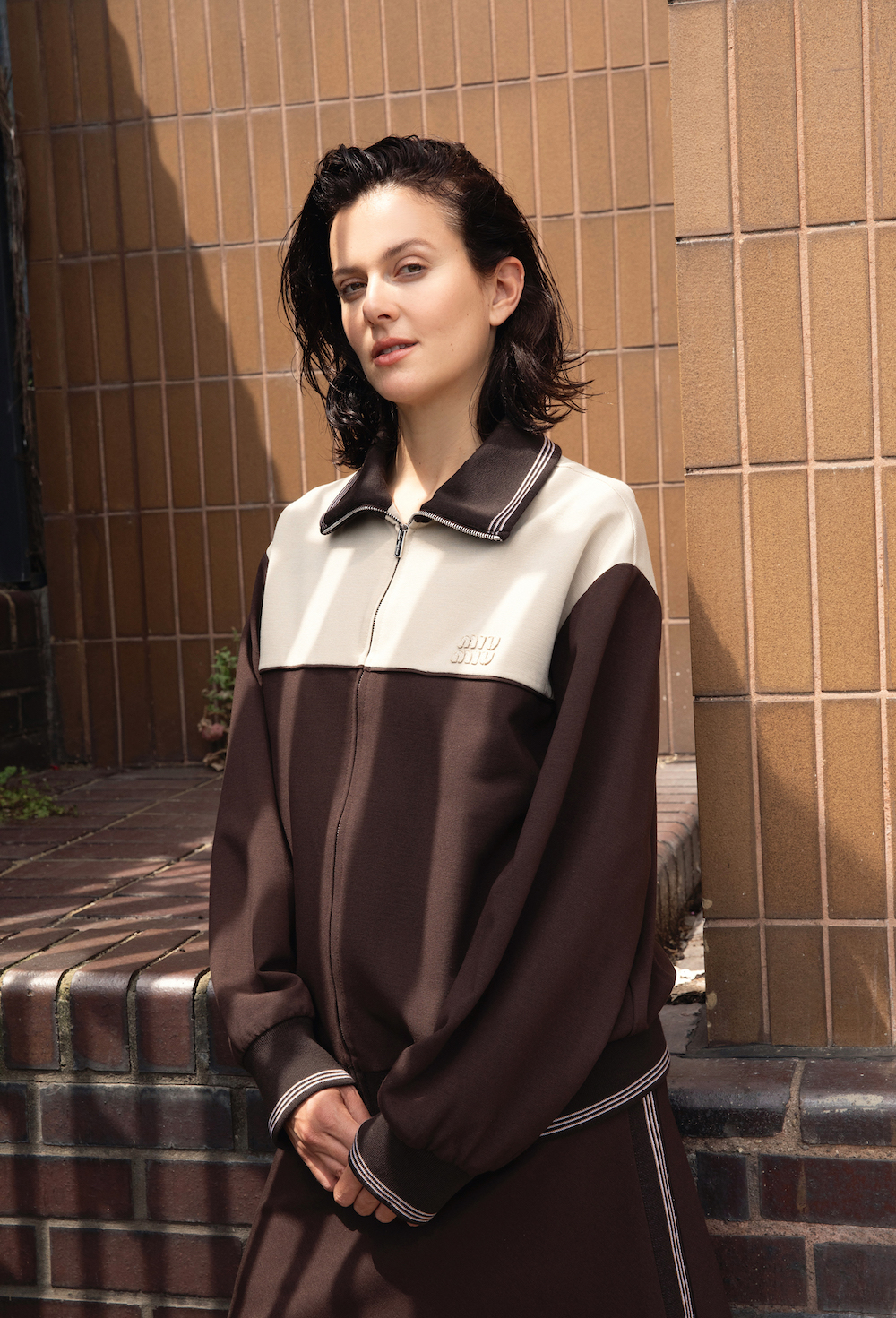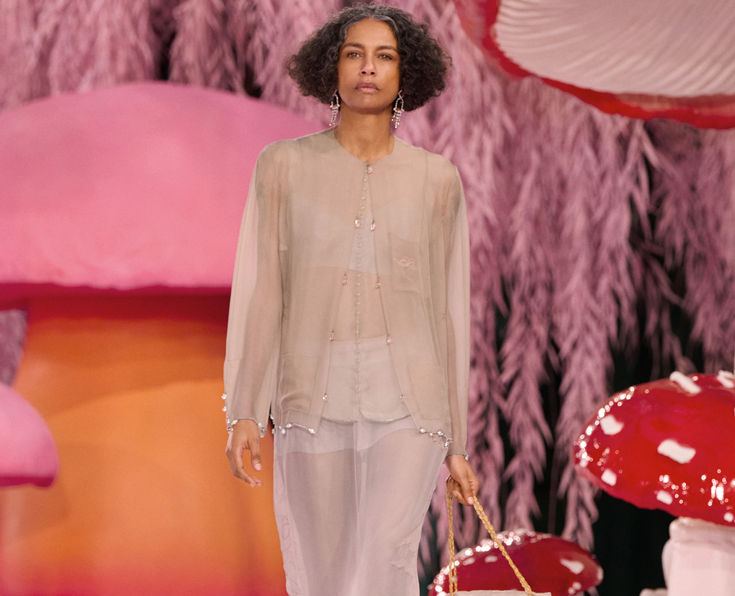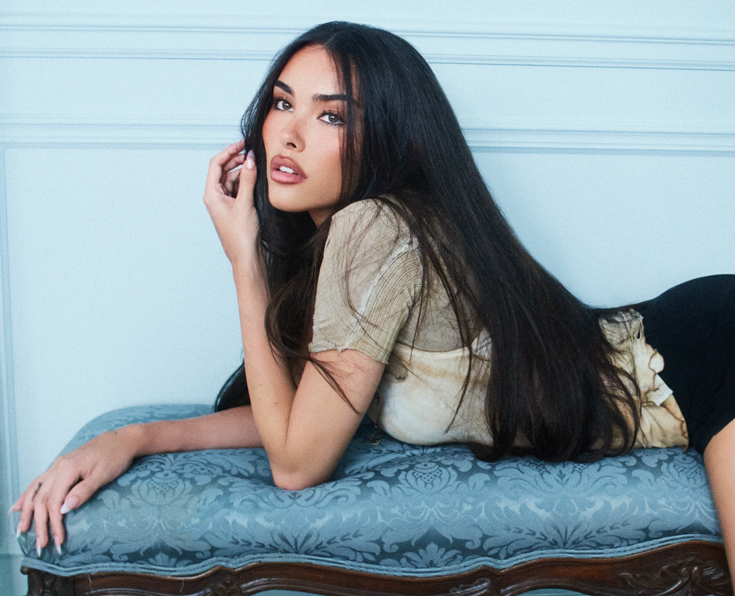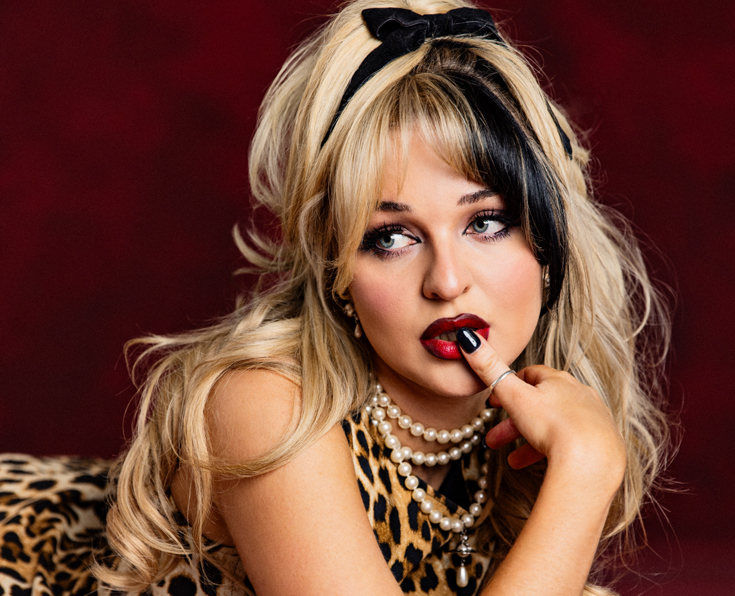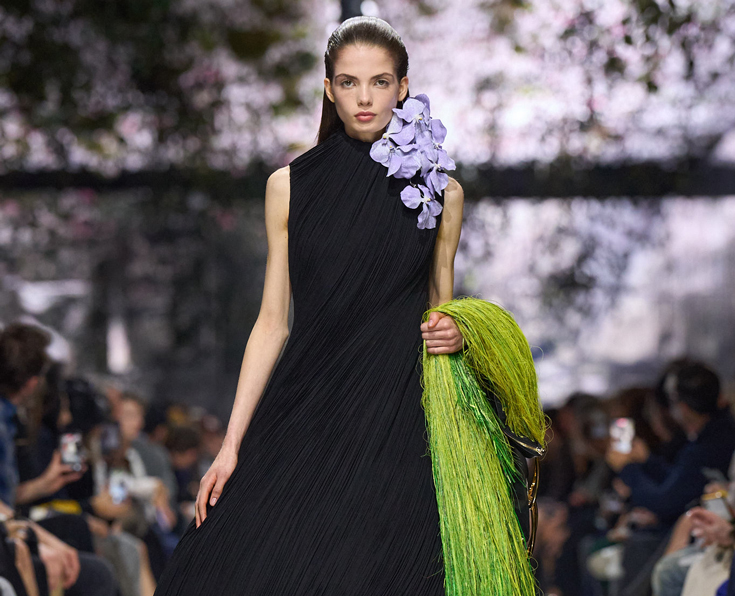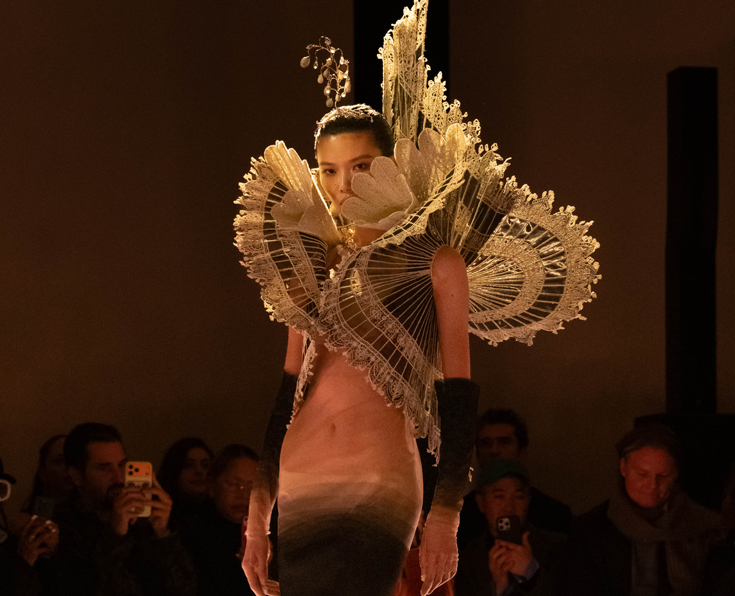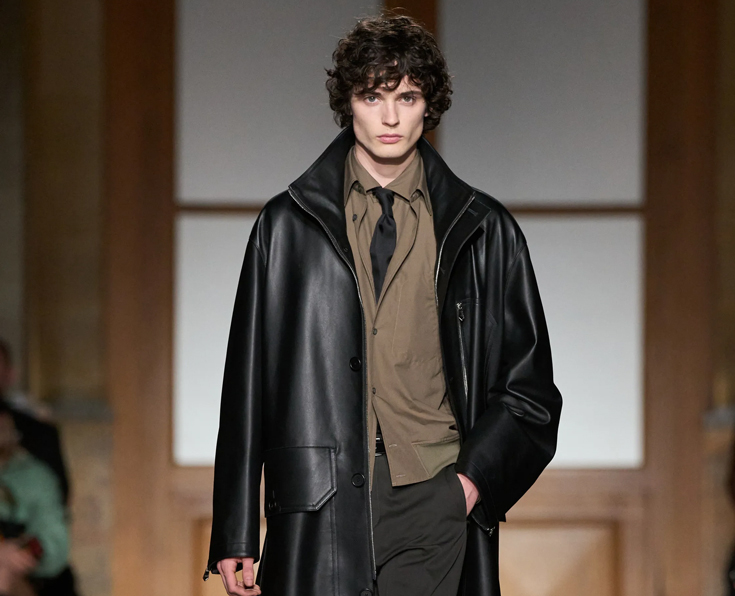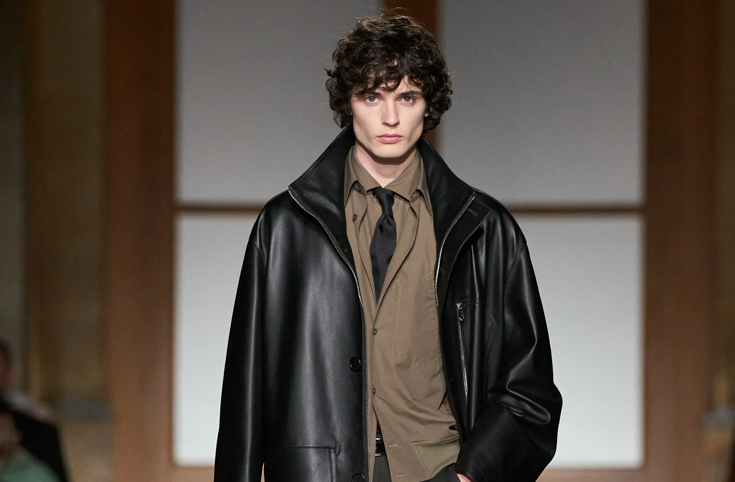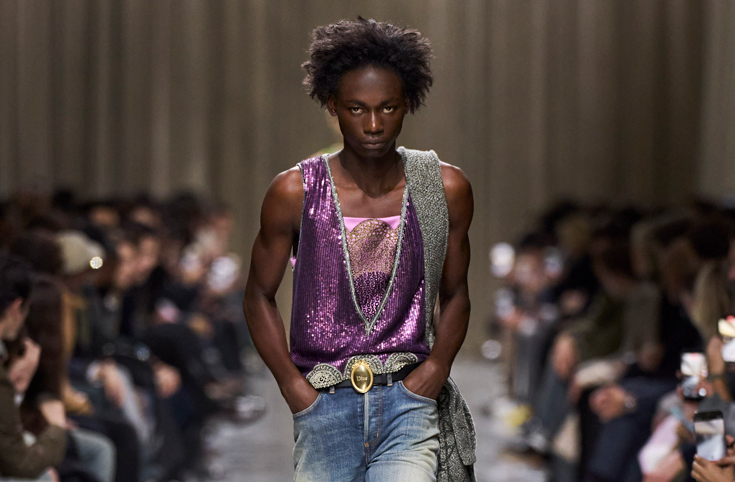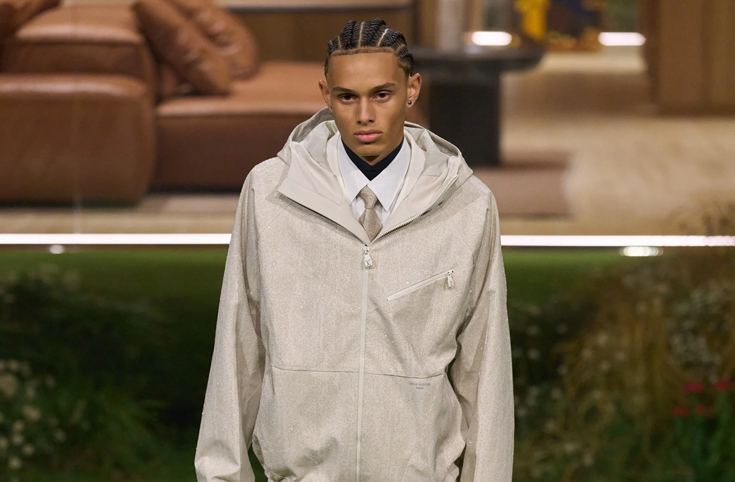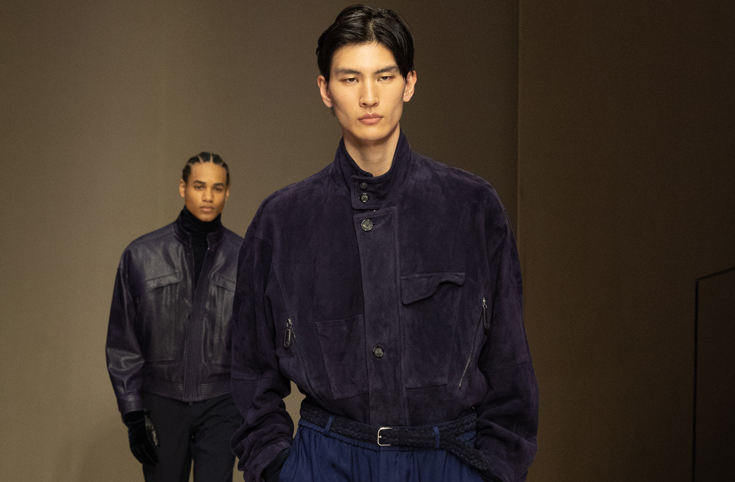FROM THE ISSUE: CLEM MACLEOD, BOOK WORM
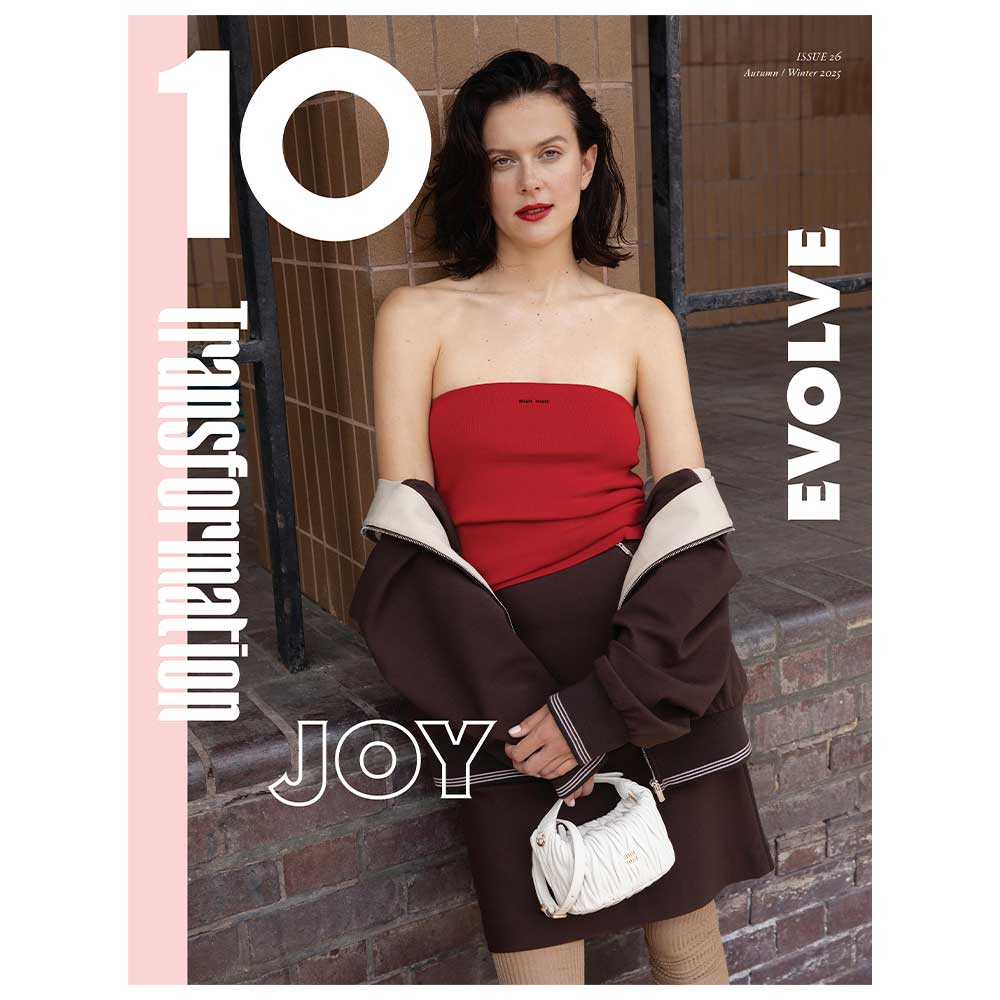
Taken from Issue 26 of 10 Magazine Australia - TRANSFORMATION, EVOLVE, JOY - on newsstands in Australia September 18.
Clem MacLeod is doing good in the name of books. The London-born and based writer and entrepreneur grew up in Sydney, where her love of reading and writing was formed. She founded the literary magazine Worms in 2019, which has expanded and transformed into a publishing company supporting underrepresented writers, alongside a podcast, merchandise and workshops. With a strong creative community around her, MacLeod has gone on to co-found Compost Library, a program of literary events, and has also created Seed Readers, which platforms and supports charitable literary and mental health organisations. She’s a fellow Miu Miu obsessive and book-club lover, so we dressed MacLeod in the house’s AW25 to gallivant around London in, talking books, fashion and growing up in Sydney.
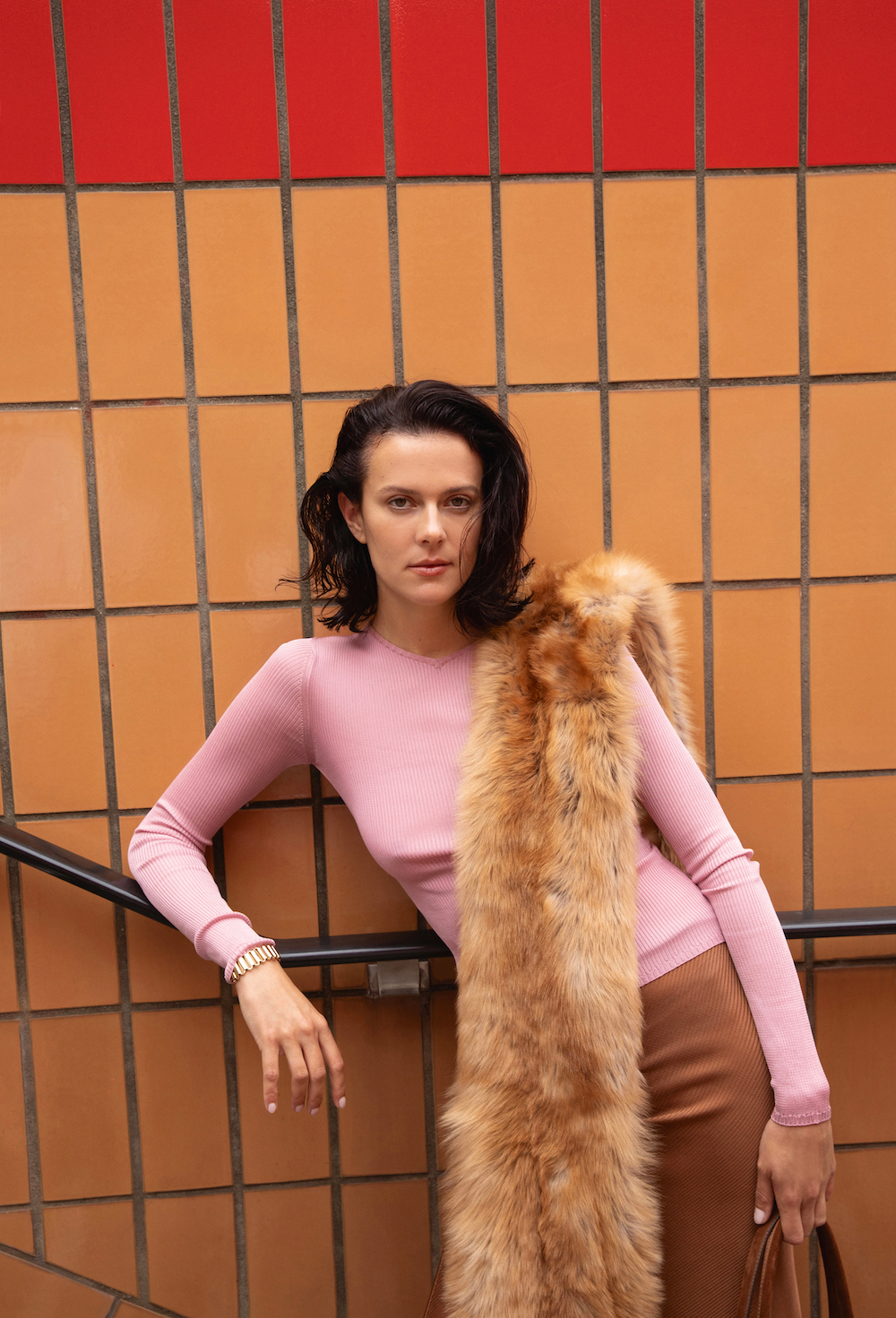
How were books and writing part of your life when you were growing up?
It started when I was a teenager in school and I was very anxious. I remember my dad took me to a bookshop once and piled me up with loads of books. It was on a Saturday and that night all my friends were going out – I realised I just wanted to stay home and read. That was a moment I will remember forever. For the first time in my life I felt really excited about missing out on something. Books have this superpower over me where I don’t feel pressure to do things or show up for people. I realised I can have this whole internal world and feel safe in that.
Which book first made you feel like that?
The Last Love Song: A Biography of Joan Didion by Tracy Daugherty. Which is so cliché.
How else were you expressing yourself as a kid?
I loved fashion.
Do you remember what you loved wearing at that time?
I loved Gossip Girl.
Oh my God, same.
I wanted to be Jenny [played by Taylor Momsen]. You know what I mean? But then also Blair [Leighton Meester]. I just didn’t want to be Serena [Blake Lively].
I wanted to be Blair. You and I went to the same high school in Sydney and our winter uniform was so Blair-coded.
It was! And then on weekends I just wanted to wear red tights and look fabulous. I always felt like I wanted to be someone else and break out of the person I was, so I dressed up a lot. The books and the writing were healing for me because it was all about being in someone else’s shoes.
Do you think you know who you are now?
I do, but I didn’t for a long time. For a long time I tried really hard… I was trying to cultivate an “I don’t give a shit, I’m going to wear what I want and do what I want” attitude. But kindness was always my North Star. I do feel like I always maintained that, but I also didn’t give a shit what anyone thought about me… I’ve spent a really long time getting closer to my authentic self and doing everything I do from a place of wholeness and being considerate of the values that I believe in. I’ve always wanted to be someone who makes people feel comfortable and creative.
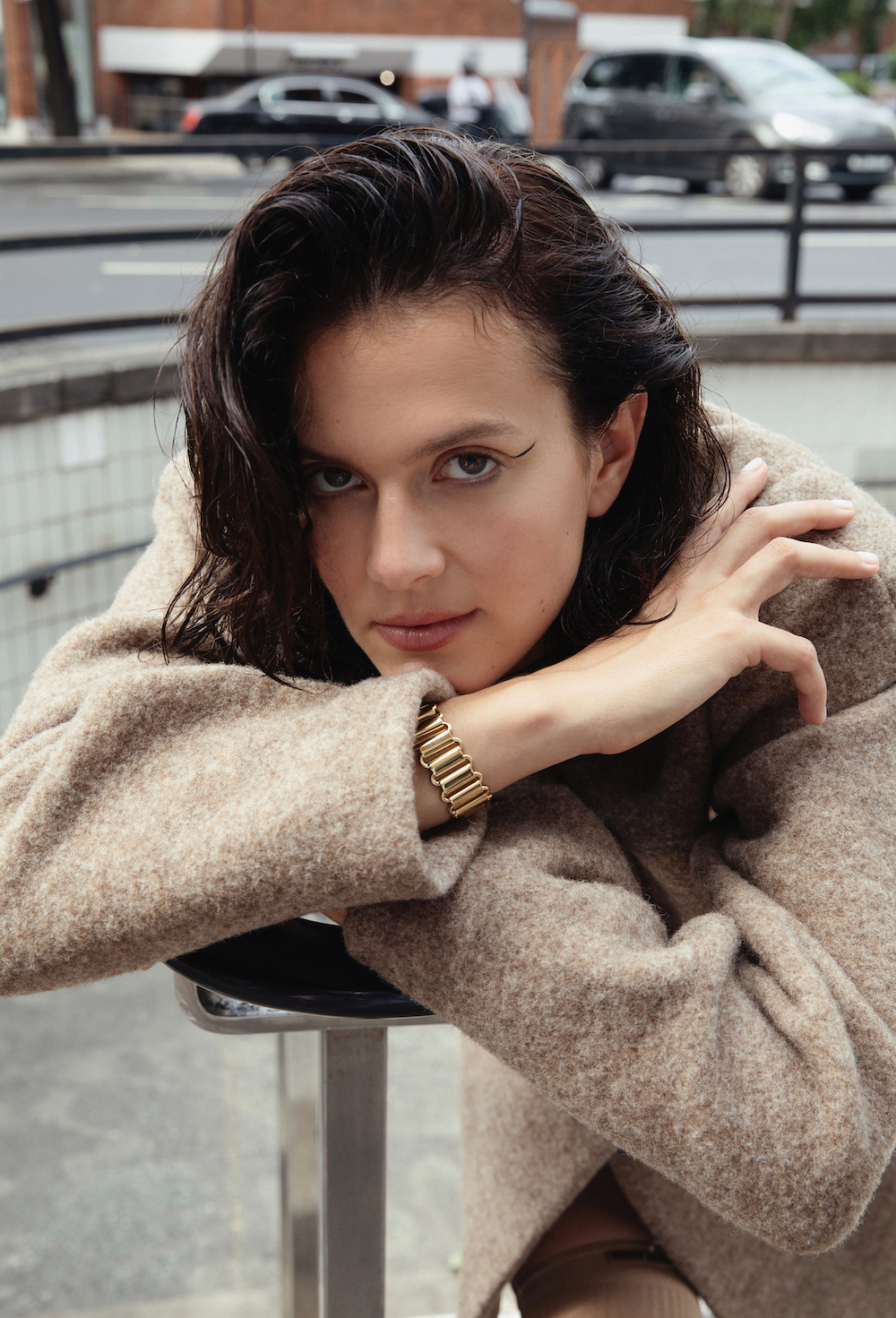
Is that what prompted the idea of Worms?
I think so. I studied fashion journalism at Central Saint Martins for five years. That was why I moved from Sydney to London after high school. We did a module that was on literary subcultures in fashion and I did the Beat Generation [of poets and writers such as Allen Ginsberg]. Those guys were so cool. Obviously there were not many women but the few there were, I wanted to be them. I wanted to be in the black turtleneck at the literary events. I think that sense of belonging [to a movement] and the intellectualism are what I resonated with. I remember doing that module and consciously knowing I was obsessed with books. When I was doing my ‘year in industry’, I went to Japan for two months and had a lot of internal reflection time. I knew I needed to do something with books for my final project.
What did you do?
I created Worms. I had this amazing tutor called Judith Watt. She was old-style Saint Martins. Like, she would make you get up in front of the class and let everyone rip you to shreds. She was obsessed with books and saw something in me that I’m grateful for because having that kind of teacher is life-changing. She suggested I do a literary magazine and make it all about the style of writers. So that was my first issue of Worms.
I love that it was your final project. How has it expanded and grown?
It was very organic. The only reason I did a second issue was because I was having dinner and a friend introduced me to [the Australian sex worker and activist] Tilly Lawless, who is all about identity politics. She was in town and asked if she could write something for the next issue. So I thought, well, I guess I have to do another issue now.
What were you doing while you worked on that?
I worked in an amazing bookshop, Donlon Books [in east London], for four years. My boss, Connor Donlon, was like a feed for everything I was doing. He’s iconic. Connor knows everything about fashion and art books, and he just put Worms in the shop. He’d do this embarrassing thing every time someone came in. If they picked up the magazine, he would point at me and say, that’s her magazine! He was my hype man.
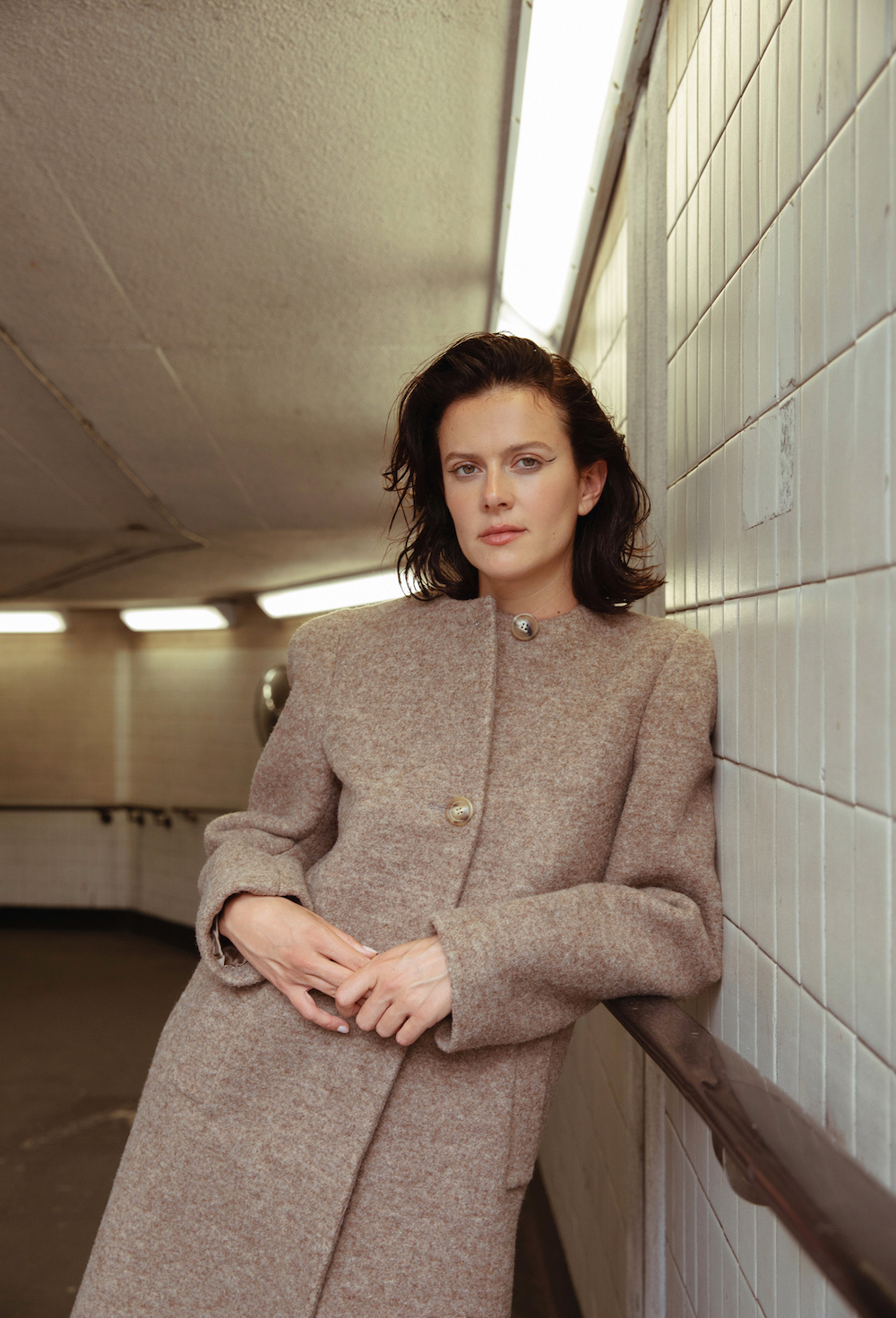
What does Worms encompass now? You’re also a publishing company.
We have the magazine and we’ve just released our first series of books.
Do you pick who you publish? What makes someone Worms-worthy?
Yes. I want to publish people who haven’t taken the traditional route. If they’ve had everything laid out for them and had the access to resources, they don’t need Worms because they can go elsewhere. Whereas the authors that we try to publish, maybe it’s the first thing they’ve ever written or they haven’t studied anything to do with writing and have just written something really beautiful. Or they’ve come to one of our workshops. We also talk to big names. Shon Faye is on the cover of our current issue. So many people will pick up the magazine because Shon is on the cover and then hopefully they stumble across our other writers.
What has been the biggest challenge you’ve faced when growing Worms?
I guess it’s following that intuitive gut instinct. There are millions of literary magazines and so many ways you can create a publication if you have the resources. But the thing about Worms is I never wanted it to be binary. It’s genre-less, with a DIY attitude, even though we are publishing things to the top quality. People often don’t know where to place us. Are you a brand? A podcast? A workshop? A publishing company? What are you? We’re not something you can put in a box. We are completely transformative.
How do you think you yourself have transformed by doing this? What have you learned?
I’ve had to let go of a lot of control. It’s all about community and we’re actually operating as a not-for-profit Community Interest Company now. Worms has been my baby and I started it but now I’ve got this amazing team. I can’t believe the universe has bought them into my life and I’ve been able to hand over my child to these people. I’ve had to give up a lot of my control and trust them, and although it’s been challenging, it’s also been the most rewarding thing ever.

It sounds like you have built a great creative community. Tell me about Seed Readers, your new project.
I wanted to do something that was for charity where I could bring together some of the amazing people I have met through Worms. I had just done this book with an amazing organisation that takes people who have just come out of hospital after dealing with bad mental health problems and teaches them creative arts. They invited me to one of their poetry workshops and I was blown away by the quality of what they had written. I knew I’d love to run a workshop with them and make a book, so I did. It was really nice to be able to make something physical for people who might not necessarily call themselves poets. I want people to be seen and celebrated.
Who are the people who have made you feel seen through their work? Who are your heroes?
Chris Kraus [the author of I Love Dick] is my number one. I think she’s the coolest person in the world. I also think [the artist] Martine Syms is amazing. And I would like to sign up to bell hooks’ religion.
Which book do you recommend to everyone?
Non-fiction, I’d say All About Love: New Visions by bell hooks. Fiction would be Clarice Lispector’s [1973 novel] Água Viva.
We were talking about Drive Your Plow Over the Bones of the Dead by Olga Tokarczuk earlier, which I just finished and loved. Best book you’ve read recently?
Oh my God, I’ve got so many good books. This is difficult. [Last year’s] Loving Corrections by adrienne maree brown.
What did you learn from that?
It’s really important to look after yourself in order to look after other people.
How do you look after yourself?
I write. I journal every day in the morning doing the Morning Pages [from Julia Cameron’s The Artist’s Way].
Does it feel like a chore to you?
No way. I love it. I also meditate every morning and afternoon for 20 minutes. Afford yourself the care that you would afford other people. I spent a lot of my early twenties being like, everything’s all about helping people, making people feel good, making my friends feel good, saying yes to everything. Now I know you can’t help anyone unless you’re looking after yourself.

Let’s talk more about fashion, because that is our ultimate self-care! You were into fashion when you were younger but what and who do you love to wear now?
I would love to wear Miu Miu all the time. You can quote me on that. But I wear a lot of streetwear brands. A lot of my good friends have brands. When I get dressed in the morning at least one item of clothing I’m wearing is made by a friend. I’m honestly so grateful for the creativity around me. There are a lot of cool female-founded young brands.
Is it important to you to surround yourself with women?
One hundred percent. There was a moment in university when I was doing the whole literary-exploration thing and I realised men are at the top of everything always. The whole story is always being dictated by them. Look, a lot of people are amazing, but I do think it’s harder for women. If a female friend of mine is starting something I’ll back it, because I know it’ll be sensitive and amazing.
Yes, I think we have an emotional depth that sometimes men do not.
Yeah, I feel like that sensitivity for women and non-binary people and trans people comes from having to suffer in some way. Anyone who has struggled with their mental health for any reason, whether it’s [because of] their gender or physical pain, I think those are the people who have the superpower of kindness and creativity.
I agree. I loved the Worms basketball shorts merch you were wearing when you arrived at our shoot.
I feel like I am always angling to tricking people into liking books and finding the joy in them. So much of fashion and a brand is being part of something. Worms is something that people want to be a part of and want to support.
It’s like a club. What’s your favourite piece you’ve designed so far?
Exactly, and the merch is an easy way to support it. We are a not-for-profit, so if you buy a pair of shorts, that profit is going to a writer or to publishing the magazine. Merch just makes sense. The most popular thing so far were the thongs.
Like in the flip-flop sense?
No, in the G-string sense. They had embroidery across the front that said ‘I Books’ and had these 3D-printed Worms logos as the back piece. The merch is a good way to get to people that don’t read into reading.

Speaking of reading initiatives, you also have Compost Library, the platform dedicated to open-access writing, co-founded with your friend P. Eldridge, which aims to help people discover the benefits of reading and writing.
Yes, it’s actually based on The Artist’s Way. Basically, the thing I’ve learned is that to be a writer or to be a creative – and to be happy – requires backing and confidence. That’s what Compost Library is all about. So we do four-week courses and base them on a writer or a group of writers we’re inspired by. We extract things from books that can be seen as lessons for writing, creativity and just life. [It’s about] living in reciprocity and feeling like you’re allowed to express yourself, to feel freedom and joy from that.
Are you spiritual?
Oh, I’m so spiritual. To a fault.
What opened you up to the world of spirituality?
When I was younger and found books, I think I just needed to believe. I had to have faith in something and it was never a religious thing. It was a belief that was making everything happen for a reason because I didn’t really have any other option. I had to believe in something bigger to keep me going.
Are you into astrology? Do you believe in it?
One hundred percent. I’m a Virgo and I’m such a typical Virgo. I’m quite organised but so anxious, and I take charge. Worms has allowed me to learn how to sit back.
What’s something you’re passionate about that you want to use your platform for more of?
Spiritual healing. Mental health. But I do manage to tie that into books and I think that’s what I’m trying to do with Seed Readers as well. I am passionate about helping people, as I struggled so much when I was younger. I didn’t realise it was abnormal.
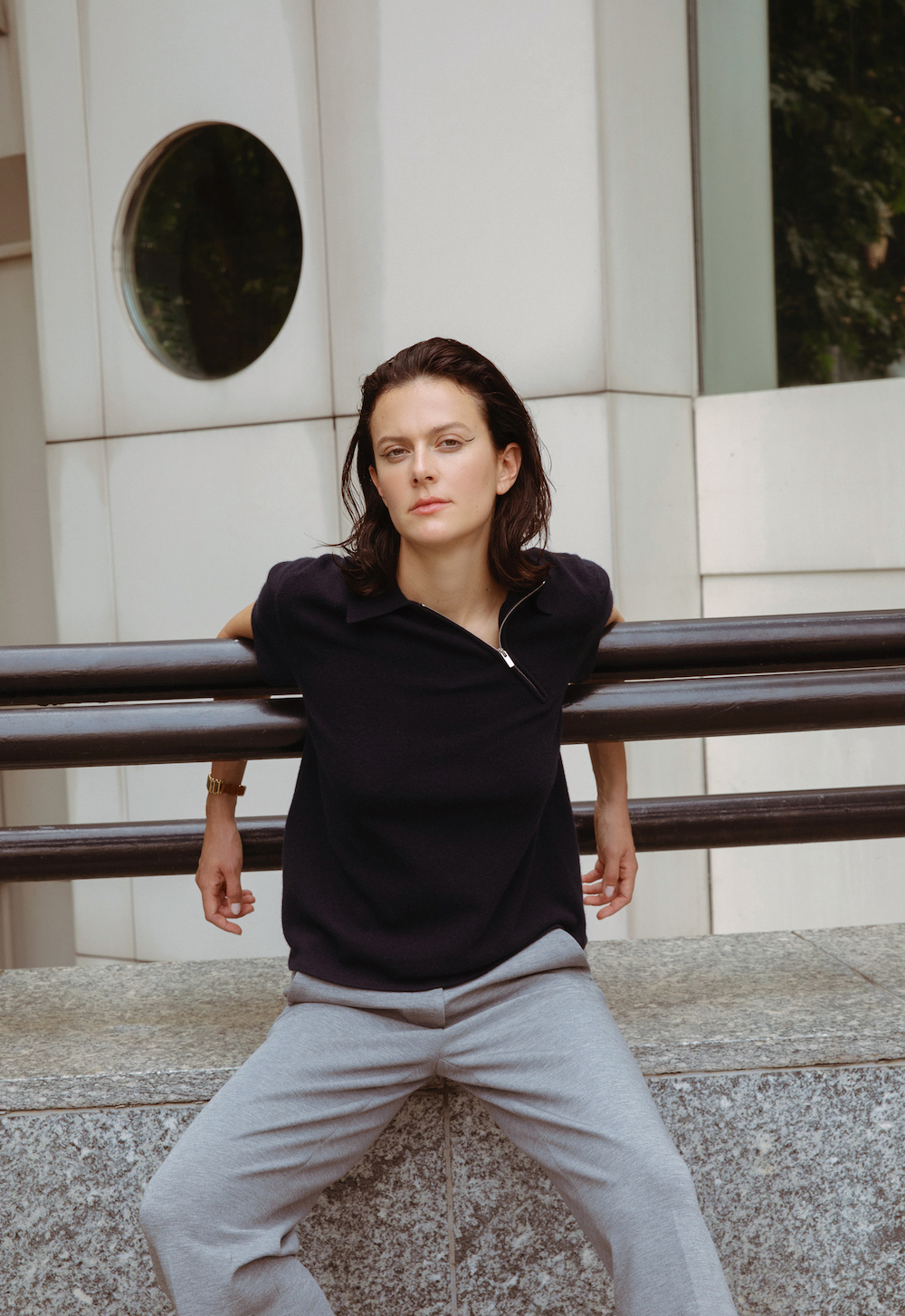
How did growing up in Sydney shape your point of view?
It’s complicated because it’s comfortable there to the point where it’s perfect. As a young person it was amazing to experience, but I think the fact that I felt so unwell in that setting made me feel even worse. Because I was like, my life’s perfect, what is wrong with me? When I moved to London, I was exposed to more and was physically less safe but it felt more rational. Whereas in Sydney I think my fears lived under the surface… I’ve been in therapy for a long time and I’ve realised if I didn’t have those resources I would be in big trouble. I’ve got a new therapist and I’m doing somatic therapy.
It’s life-changing.
It gives me the permission to be calm. Before, I felt like being calm was laziness or unproductive. It’s also important because other people feel your energy too. It’s important to me to make people feel safe.
You have good, calming energy. What kind of music do you listen to?
I listen to a lot of ambient music. When I’m working I just listen to Brian Eno.
Do you watch TV?
Yeah, I do. I like to have a series on the go but, actually, I’d rather read my book.
Same. If you were going to adapt a book, what would you choose?
I actually just read my friend Eva Wyles’s short stories called Deliverywoman. There’s one in there that is unreal. I’m thinking about how I can get that adapted to TV.

Are you writing your own book?
I would like to. I write a lot of non-fiction. I feel like right now I’m at a stage of life where I’m facilitating other people’s writing. Down the line, when everything is up and running itself, that’s when I’ll have time to focus on myself. It’s all been born from the effect reading had on me, and especially [my work with] Seed Readers. I had been doing some research into the therapeutic uses of reading and writing – there’s so much, especially around the different parts of your brain, that light up when you read. You can see brain scans of empathy lighting up in people’s minds when they read fiction. I just want to get more people reading. Let’s just get loads of kids reading and writing and recognising how powerful it is.
What do you think is the literary movement that’s happening right now?
It’s becoming more popular [to read]. Maybe I’m naive or too hopeful, but I think that there is a paradigm shift happening in literature – at least in the creative communities that I’m a part of. People want to go a bit deeper and do a bit more.
Do you think that’s a reflection of the state of the world right now?
It could be a response to everything that’s going on. I think it’s impossible to turn a blind eye.
Do you feel the pressure to talk about everything that’s happening right now in the world through your platforms?
It just happens naturally. So much of what we do is about being human and being sensitive. So it’s impossible to not talk about the horrors of the world right now. But we also want to offer some kind of hope. Whether that’s reading a good book or letting people express themselves. It comes from a pure place. I just want to give people the escapism I got from books.
What’s next?
We’ve got the next magazine coming out. Loads of books. I hope that Seed Readers will grow. Honestly, I’m just trying to spread the good word of loving books.
